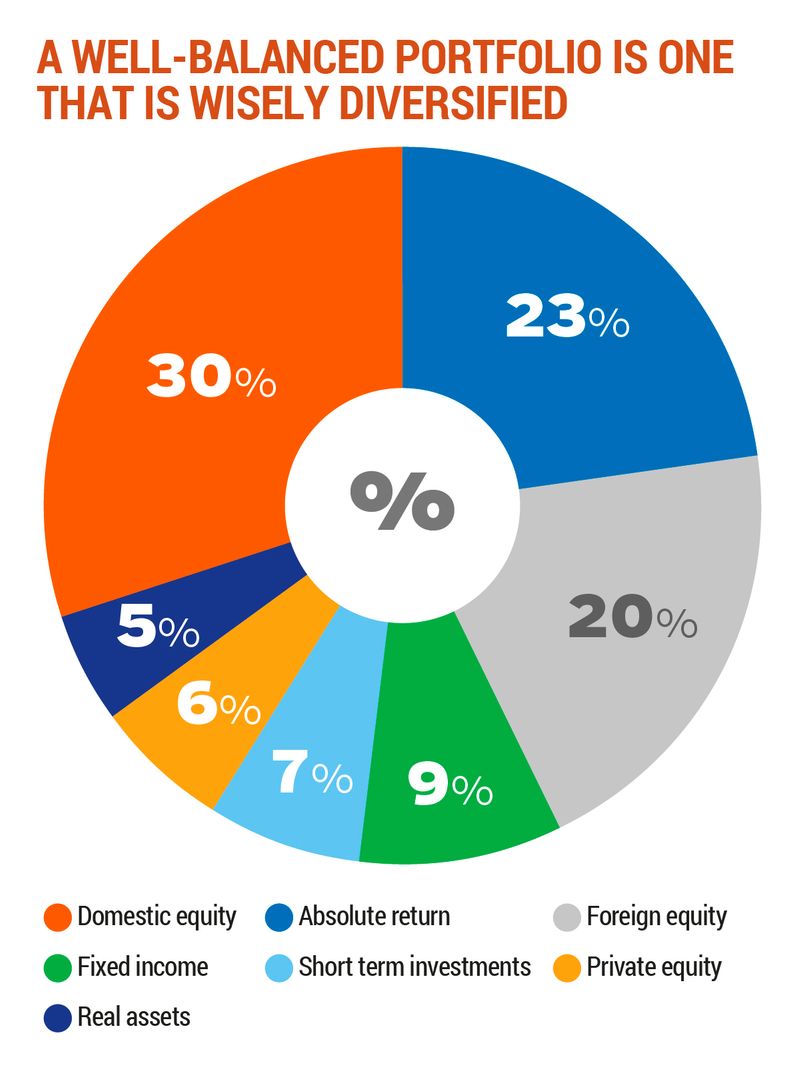
A ‘fund of funds’ is exactly as it sounds -- it is a fund that invests in other mutual funds or hedge funds.
The basic idea is that a fund of funds can offer greater diversification and access to funds that require a high minimum investment, albeit with an additional layer of fees.
So simply put, a ‘fund of funds’ is a unique type of investment strategy of holding a portfolio of other investment funds rather than investing directly in stocks, bonds or other securities.
A ‘fund of funds’ is exactly as it sounds -- it is a fund that invests in other mutual funds or hedge funds.
Let’s explore further into what are ‘fund of funds’ —also known as a multi-manager investment— and what are their perks compared to regularly managed funds.
So, what are fund of funds? A fund of funds (FOF) is a pooled investment fund that invests in other types of funds. In other words, its portfolio contains different underlying portfolios of other funds.
Types of Fund of Funds (FOFs)
There are different kinds of FOFs, with each type acting on a different investment scheme. A FOF may be structured as a mutual fund, a hedge fund, a private equity fund, or an investment trust.
• Mutual fund of funds: When a Fund of Funds (FOF) invests its fund assets in a portfolio of mutual funds that can invest in stocks, bonds and other types of securities based on the mandate of the respective funds.
For example, Vanguard's 'target date' mutual funds pool investors' money and invest it into four other Vanguard funds.

• Hedge fund of funds: Hedge funds of funds (FOF) make investments in other hedge funds and with the goal of greater diversification.
This type of investment style gains broad exposure to the hedge fund industry while diversifying the risk associated with one single fund. These funds will not make an investment in individual securities.
• Private equity fund of funds: The most widely diversified private equity investment vehicle is the private equity fund of funds.
Investors in private equity funds of funds include public and corporate pension plans, endowments/foundations, insurance companies/banks and family offices and high net worth individuals.
• Investment trust fund of funds: Investment trusts, as you know, is a types of fund that pool investors’ money to buy a portfolio of stocks, bonds or property.
An investment trust fund of fund manager handles a portfolio of different investment trusts.
Benefits, like other FOFs, include being several times diversified which should help further reduce volatility in returns, aside from the fact that there could also be further diversity in the fund managers.

Key advantages to investing in FOFs
• Helps those with limited capital
FOFs usually attract small investors who want to get better exposure with fewer risks compared to directly investing in securities—or even in individual funds.
Investing in a FOF also allows investors with limited capital to tap into diversified portfolios with different underlying assets. Many of these would be out-of-reach for the average retail investor.
For example, hedge funds typically require six-figure minimum investments or require investors to have a minimum net worth—or both.
• Another level of scrutiny
FOFs provide an additional level of scrutiny or background checks of all the fund managers involved.
With a formal due-diligence procedure for the fund managers—both their own and those managing the underlying funds, it ensures the portfolio handler's credentials in the securities industry.
FOFs provide an additional level of scrutiny or background checks of all the fund managers involved.
Key disadvantages
• Fee on top of fees
Though FOFs provide diversification and less exposure to market volatility, these returns may be lessened by investment fees that are typically higher than traditional investment funds.
One of the biggest criticisms of funds of funds is that they make investing more expensive by adding another layer of annual management and performance fees.
Like most mutual funds, a FOF carries an annual operating expense—known as the expense ratio—as well as management fees and operating costs.
FOFs investors are essentially paying double—because the underlying funds in the FOF all have their annual costs and fees, too.
A fund of funds might charge annual management fees of 0.5 per cent to 1 per cent to invest in funds that charge another 1 per cent annual management fee. So, the FOF investor in sum is paying up to 2 per cent.

• Choosing the right manager
Similarly, just as it is difficult to pick market-beating stocks, studies show it is just as tough to select market-beating fund managers.
Studies show it is just as tough to select market-beating fund managers.
Selecting star fund managers from a pool of thousands of fund managers is no easy task, as historical performance is no guarantee of future results.
• Too much diversification?
Also because a fund of funds may invest in hundreds of funds, it may become so diversified that beating the market is impossible.
A fund of 20 funds that each holds 50 stocks could own 1,000 investments.
With that kind of diversification, the fund of funds' investors would likely be better off owning a low-fee index fund that offers vast diversification at a substantially reduced price.

Comparing FOFs with regular funds
After allocating the money invested to fees and other payable taxes, the returns of fund of funds investments may generally be lower compared to the profits that single-manager funds can provide—even if the funds perform very well.
Real world examples
Let’s now compare returns of FOFs and regular funds, with real world examples. After which we would be able to come to a conclusion.
According to the tracker, in February 2020, 572 FOFs had averaged a loss of 1.5 per cent.
In comparison, hedge funds returned a loss of 3 per cent when putting together data from over 3000 funds, while returns from mutual funds slipped an average of 2.5 per cent.
Although this data reflects a time of severe market downturn, one can deduce that investing in fund of funds can help reduce your losses than let’s say mutual funds or hedge funds (even if you could afford it).
In 2018 returns dropped 4.8 per cent for FOFs, while hedge funds returns fell 5.2 per cent and mutual funds declined a little over 6 per cent.
When reviewing these figures, one could conclude that while in years like 2019, when most funds provided positive returns amid a general market wide rally, mutual funds and hedge funds outperformed by giving higher profits.
But at a time when most funds gave negative returns (a bearish market), fund of funds or FOFs seemed to fare better by not performing as bad as mutual funds or hedge funds, mainly as it uses a mixture of these funds to reduce its losses.

In years like 2019, when most funds provided positive returns amid a general market wide rally, mutual funds and hedge funds outperformed by giving higher profits. But at a time when most funds gave negative returns (a bearish market), fund of funds or FOFs seemed to fare better.
But one should remember that even in cases when these ‘fund of funds’ or FOFs perform better than regular funds, because of the higher expenses, the profits that you as an investor pocket will be even lesser – which is why it is advised to opt for regularly managed funds.








